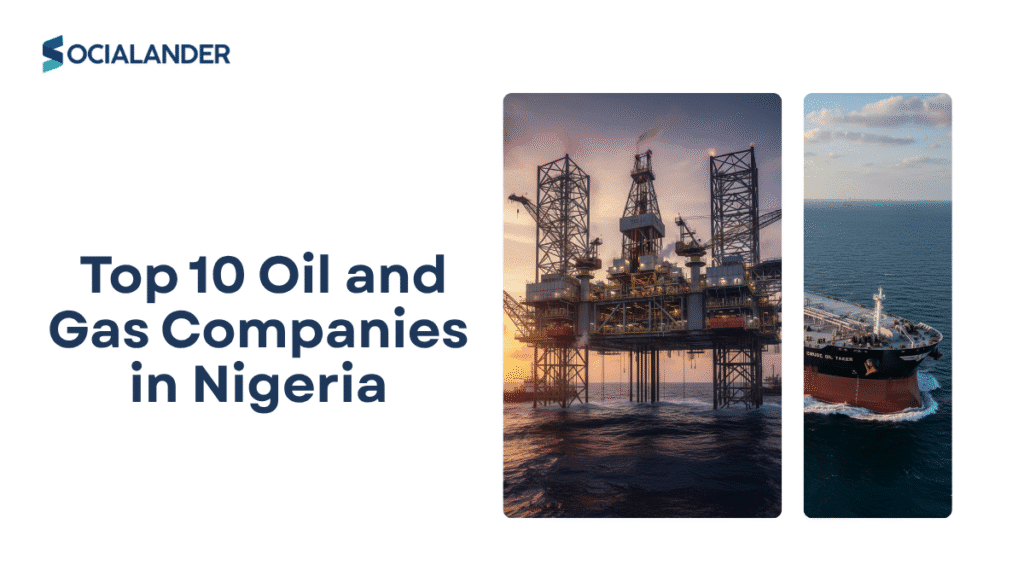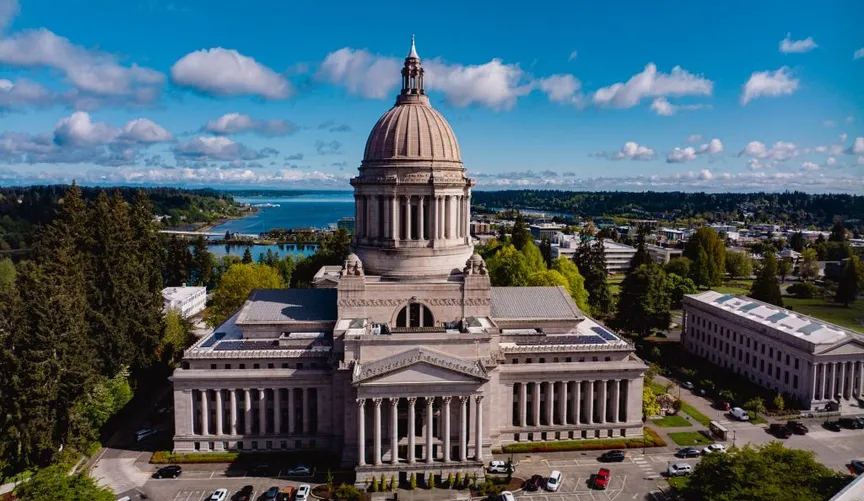
The oil and gas industry is an important part of the global economy, generating trillions of dollars in revenue. Oil is essential for transportation, electricity, and industrial production, making the industry critical to daily life and economic activity. It is divided into three main segments: upstream (exploration and production), midstream (transportation and storage), and downstream (refining and distribution).
Oil was discovered in Nigeria in 1956, with production starting in the late 1950s. In the following decade, oil exploration would open to foreign companies, and with some exceptions due to economic circumstances, the oil industry would grow constantly to become a global giant. In 1977, the Nigerian National Petroleum Company (NNPC) was founded. The aim of the state-owned corporation is to regulate and participate in the country’s oil business. Nigeria is one of Africa’s main oil producers. With 15 operating pipelines and an average daily production of some 1.5 million barrels in 2023, Nigeria is the fifteenth largest oil producer worldwide. Moreover, the petroleum industry accounts for about 5.5 percent of Nigeria’s GDP and for around 92 percent of the value of all exports.
Top 10 Oil and Gas Companies in Nigeria
We understand that to grasp the complexity of Nigeria’s energy market, you must first know who the primary actors are and the roles they play in production, exploration, and distribution. Nigeria is Africa’s largest oil producer, and these top-tier companies, in partnership with the state, control the majority of the nation’s hydrocarbon resources. We have analyzed market data and official reports to clearly categorize these giants, building your confidence in our analysis of the country’s energy landscape.
We present the top 10 list based on their significant production capacity, market relevance, and strategic importance within the country.
| Rank (by Strategic Importance) | Company Name | Type | Primary Role in Nigeria | Key Activities & Focus |
| 1 | Nigerian National Petroleum Company Ltd. (NNPCL) | State-Owned | Sector Regulator & Operator | Oversees all exploration, production, and marketing; holds majority JV stakes. |
| 2 | Shell PLC (via SPDC) | International | Major Upstream Producer | Extensive onshore and offshore JVs; historically the largest producer. |
| 3 | ExxonMobil (via MPN) | International | Large Offshore Producer | Focus on deepwater exploration and production (E&P), notably the Oso field. |
| 4 | Chevron Corporation (via CNL) | International | Major Deepwater Operator | Operates key JVs and deepwater assets like the Agbami field. |
| 5 | TotalEnergies SE | International | Integrated Energy Major | Upstream E&P (onshore and offshore) and a significant downstream network. |
| 6 | Nigeria LNG Limited (NLNG) | Joint Venture | Gas Liquefaction & Export | Processes and exports Nigeria’s vast natural gas resources. |
| 7 | Seplat Energy Plc | Indigenous | Independent E&P Focus | Leading Nigerian-listed independent oil and gas exploration and production company. |
| 8 | Oando PLC | Indigenous | Integrated Energy Group | Diverse operations across upstream, midstream, and downstream sectors. |
| 9 | Nigerian Petroleum Development Company (NPDC) | State-Owned Subsidiary | Upstream Exploration & Production | Direct operator of numerous oil and gas fields under NNPCL. |
| 10 | TotalEnergies Marketing Nigeria Plc | Downstream | Retail and Distribution | Focuses on marketing and distributing refined petroleum products via service stations. |
1. Nigerian National Petroleum Company Limited
The NNPCL is the definitive anchor of the Nigerian oil and gas industry. As a state-owned enterprise, its role is two-fold: it regulates the sector and operates as a commercial entity across the entire value chain—upstream, midstream, and downstream. We prioritize the NNPCL because it holds the government’s majority stake (typically 60%) in most joint ventures (JVs) with International Oil Companies (IOCs). This structure means every major operational decision in the industry involves the NNPCL.
Strategic Importance: We recognize the NNPCL is critical to national energy security and maximizing the value of the country’s hydrocarbon reserves
2. Shell PLC
Shell has historically been the largest and most influential foreign producer in Nigeria, operating for over six decades. Its subsidiary, SPDC, has been central to the nation’s oil discovery and production. While Shell has divested some onshore assets to indigenous companies, its deepwater and gas operations remain immense.
Key Focus: Shell continues to be a major producer through its deepwater exploration and its involvement in the Nigeria LNG Limited (NLNG) joint venture, highlighting a strategic shift toward gas.
3. ExxonMobil
ExxonMobil is a crucial international player, primarily known for its massive offshore and deepwater operations. We include them high on the list due to the scale and stability of their assets. They are one of the largest crude oil producers in the country, often focusing on advanced technology for resource recovery.
Operational Scale: Their operations in Nigeria, particularly through MPN, are essential to maintaining the country’s crude oil export capacity.
4. Chevron Corporation
Chevron is recognized as one of the largest deepwater operators in Nigeria. Their long-standing joint venture with the NNPCL in the Niger Delta and their operatorship of major deepwater fields like Agbami demonstrate their critical role in the upstream segment.
Deepwater Expertise: The ability of CNL to manage and operate complex deepwater fields like Agbami secures its position as a major contributor to Nigeria’s output
5. TotalEnergies SE
TotalEnergies holds a significant position due to its integrated nature, spanning from exploration to retail. The company operates several oil mining leases (OMLs) and is deeply involved in deepwater projects. Its presence is visible across Nigeria, not just in production but also in its large network of service stations.
Integration: The company’s diverse portfolio, including gas and downstream activities (TotalEnergies Marketing), provides substantial value across the entire energy chain.
6. Nigeria LNG Limited (NLNG)
The NLNG is vital for Nigeria’s massive natural gas reserves. As a joint venture between NNPCL and several IOCs (including Shell, TotalEnergies, and Eni), its purpose is to process and export liquefied natural gas (LNG).
Gas Monetization: We stress the importance of NLNG as it is the primary vehicle for monetizing Nigeria’s vast gas resources, reducing gas flaring, and generating significant revenue.
7. Seplat Energy Plc
Seplat is the leading and most capitalized indigenous oil and gas company listed on both the Nigerian and London stock exchanges. Its success demonstrates the increasing capability of local firms to manage significant exploration and production assets, often acquired from IOC divestments.
Indigenous Leadership: We highlight Seplat as the flag-bearer of indigenous participation in the upstream sector, which is a major focus of Nigeria’s current energy policy.
8. Oando PLC
Oando is one of Nigeria’s most diversified and integrated energy groups, involved in upstream, midstream, and downstream activities. The company has recently made significant strategic acquisitions, further cementing its position as a major indigenous player with deep market penetration.
Value Chain Coverage: Its presence across the entire value chain—from oil block ownership to retail distribution—makes it a significant market force.
9. Nigerian Petroleum Development Company (NPDC)
The NPDC is the dedicated upstream exploration and production subsidiary of the NNPCL. We include it separately to emphasize the state’s direct operational capacity. It often works independently or in smaller JVs, managing several blocks across the Niger Delta.
Direct E&P: The NPDC’s operations are key to the NNPCL’s strategy of increasing its non-JV, directly-operated production output.
10. TotalEnergies Marketing Nigeria Plc
While TotalEnergies SE is the upstream parent, the Marketing Plc subsidiary is a dominant force in the downstream sector. It specializes in the sale and distribution of refined products (PMS, diesel, aviation fuel) and lubricants, operating one of the largest networks of service stations nationwide.
Downstream Market Share: This company is crucial for the final delivery and distribution of refined products to Nigerian consumers and industries.
Outro & Summary
The composition of the Nigerian oil and gas sector clearly illustrates a strategic partnership model: the central authority of the NNPCL works with the technical and financial might of the IOCs for high-volume production, while increasingly empowering indigenous players like Seplat and Oando to manage divested assets. Just like the oil and gas companies in Kenya, Nigeria’s oil and gas industry is highly competitive, strategically important, and poised for growth making it a sector to watch for both consumers and investors.
FAQ (Frequently Asked Questions)
What is the difference between an IOC and an indigenous oil company in Nigeria?
An International Oil Company (IOC) is a multinational firm (like Shell or Chevron) headquartered outside of Nigeria, typically holding technical expertise and deep pockets. An Indigenous Oil Company (like Seplat or Oando) is a firm founded, registered, and primarily operated by Nigerian nationals, often focusing on domestic assets.
How does the market value of indigenous companies like Seplat compare to the large IOCs?
While indigenous companies are rapidly growing, the large IOCs like Shell and ExxonMobil are massive global corporations with market capitalizations in the hundreds of billions of US dollars. Indigenous companies like Seplat and Oando are significant within the local Nigerian context, but their market values are substantially smaller than those of their multinational counterparts.





